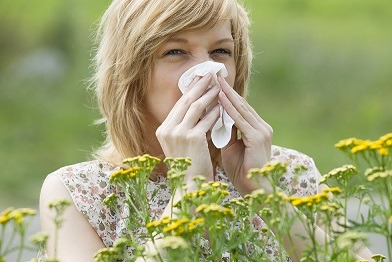For allergy sufferers, pollen can be an unfortunate contributor to poor health. There are signs that this nuisance will become worse. Warm weather contributes to an uptick in pollen count, and air pollution can concentrate it.
In fact, carbon dioxide pollution has a strong connection with allergens. Plants grow bigger in the presence of more carbon dioxide, a potent greenhouse gas.
In the process, they produce more flowers with greater amounts of pollen. Combining larger plants, more flowers and more pollen means longer allergy seasons.
Furthermore, some plants will produce more pollen when they are concentrated in urban “heat islands” which trap and concentrate heat. Examples of plants affected by this include poison ivy and ragweed.
Poison ivy grows in greater abundance and larger sizes. It also produces more irritants such as the chemical urushiol in these conditions.
Ragweed produces more pollen when temperatures rise and possibly even produces more irritants then as well.
Another type of irritant we need to worry about is mold, especially in household materials such as walls or insulation materials. Persistent mold exposure can result in infection and other breathing troubles. Carbon dioxide production, fluctuating moisture levels and temperature shifts—all typical of our new climate—enable mold growth even more.
The pernicious grip of allergies on human health has been around for millennia, but it takes little imagination to understand that this budding health crisis will become increasingly insidious. The research clearly shows that pollen seasons are lengthening.
While reducing climate change will take concerted global effort, there are some ways we can reduce the impact of allergens on our own health.
For starters, try landscaping with trees that produce less pollen, such as female trees and bushes when landscaping. Ways to support policy and civil society initiatives include donating to asthma and allergy research centers such as the Asthma and Allergy Foundation of America to help understand further causes plus mitigation.
Understanding what triggers allergen production and how we are affected by it will help everyday people live healthier, happier lives.
Allergies may be worsening, but losing hope over the climate change fight as a whole would be a wrong turn. Allergy shifts are simply a difficult wakeup call to invest in further climate efforts.
Reducing emissions will lessen the production of greenhouse gasses that lead to warming temperatures and pollen production.


